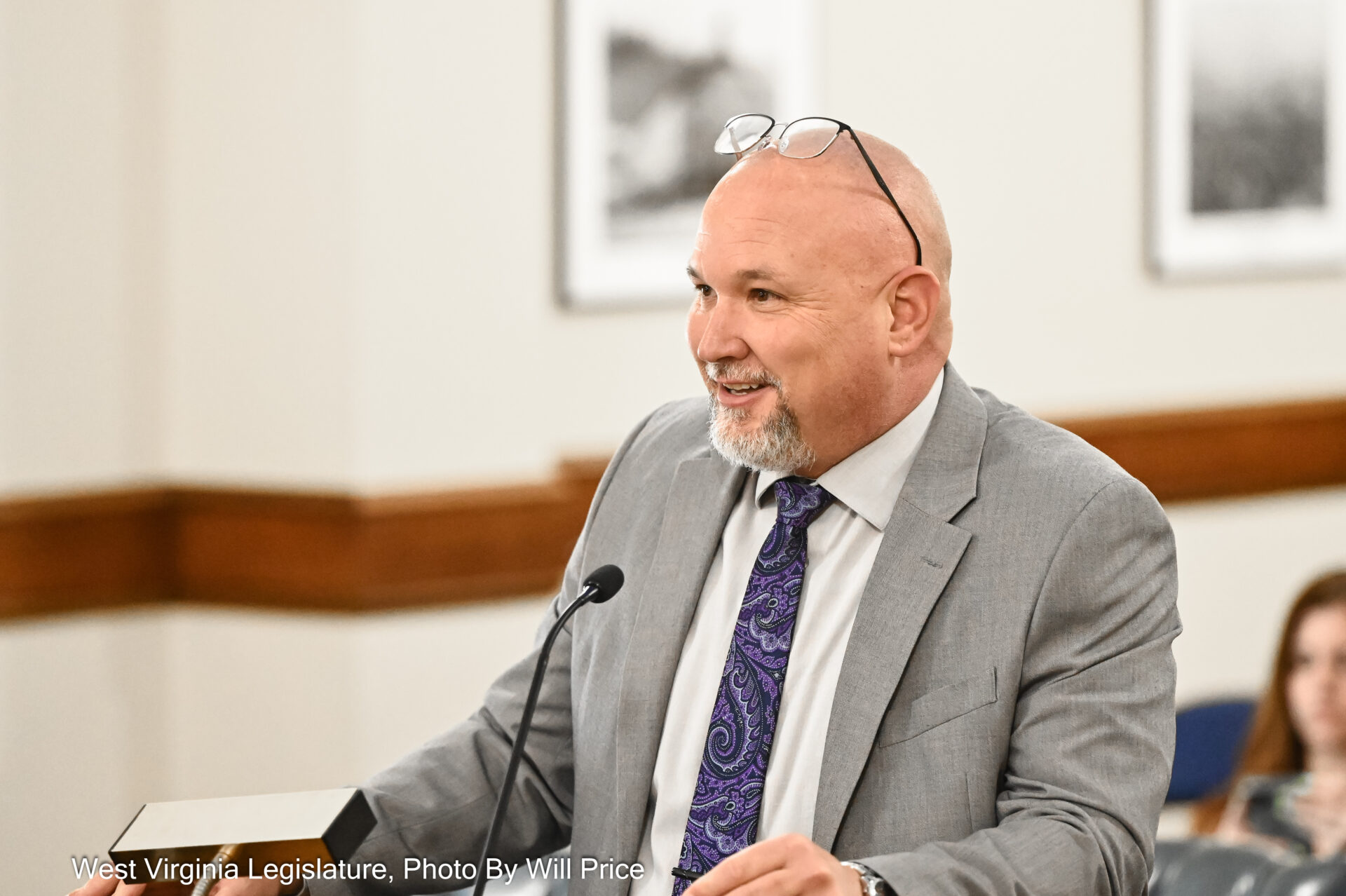Just three years ago, EMS provider numbers across the state were down a third. At that time, more than 3,000 staffers were needed..
In November 2023, state EMS Director Jody Ratliff told WVPB increased recruitment and retention efforts helped gain 600 providers over the past year. On Tuesday, Ratliff told the interim Joint Committee on Volunteer Fire Department and Emergency Medical Services he expects to see more gains when the numbers are released in May.
Ratliff said two years into the EMS Leadership classes conducted in partnership with University of Charleston, the instruction is invaluable. He said the gains have come in promoting rural EMTs and paramedics who are great health care providers but lack the needed business expertise.
“This class is that Director 101,” Ratliff said. “That teaches about budgets, about everything HR, everything that you need to know, that base that you need to actually be a director.”
Among recent EMS advancements, Ratliff said the state is ready to sign the contract for “Hospital Hub” software that will greatly improve patient charting originating in the ambulance.
“In the past, we’ve had to submit our chart to the hospital, once we got them there, fax it to them, mail it to them, depending on what era it was, how we got it there,” Ratliff said. “The Hospital Hub is in real time. As that chart comes through our system, it’ll immediately be sent to the hospital that the patient is going to. That’s a permanent record that will automatically go to the hospital and that chart can actually flow right into the hospital’s chart. So all that permanent record stays with them.”
Ratliff told the committee he expects to see a number of positives from the upcoming Emergency Medical Services Pediatric Symposium. It will be held at the Summit Bechtel Reserve in Fayette County Sept. 29 through Oct. 2.
“It’s free education,” Ratliff said. “It’s the first multi-day pediatric symposium we’ve had in the state. We’ve got instructors coming in from Shriners Children’s National Hospital, Florida Pediatrics and the University of Kentucky. There is going to be trauma and respiratory specialties for children, snake bites, burns, better ingestion, pediatric abuse, head trauma, shock. And the Boy Scout camp is allowing us to use their facilities.”
Ratliff said local EMS squads are excited about the ability to bill insurance patients for emergency care that doesn’t include transport. The legislature passed that law in the general session earlier this year.
“The protocols are ready, and they will be rolling out this week,” Ratliff said. “And they’re champing at the bit to get a hold of them.”
Del. Joe Statler, R-Monongalia, requested the committee push for additional state EMS funding in the expected upcoming special session.
“I’m an advocate that we do have to do some type of state funding that would be in conjunction with the counties where the services are needed out there,” Statler said.
——————————————————————————————–
0416emsinterimSPOT
HOST: West Virginia’s long depleted Emergency Medical Services staffing continues a positive turnaround. Randy Yohe has more.
Randy: Just three years ago, EMS provider numbers across the state were down a third, from a total need of more than 3,000.
State EMS Director Jody Ratliff has said increased recruitment and retention efforts helped gain 600 providers last year. He told the interim Joint Committee on Volunteer Fire Department and EMS Tuesday there is another annual net positive employment gain so far in 2024.
Ratliff said the EMS leadership classes at the University of Charleston are invaluable in promoting rural EMTs and paramedics who are great health care providers, but lack the needed business expertise.
Ratliff bite: 21:24 “This class is that director 101, that teaches about budgets, about everything HR, everything that you need to know, that base that you need to actually be a director.”
Del. Joe Statler, a Republican from Monongalia County, requested the committee push for additional state EMS funding in the expected upcoming special session.
